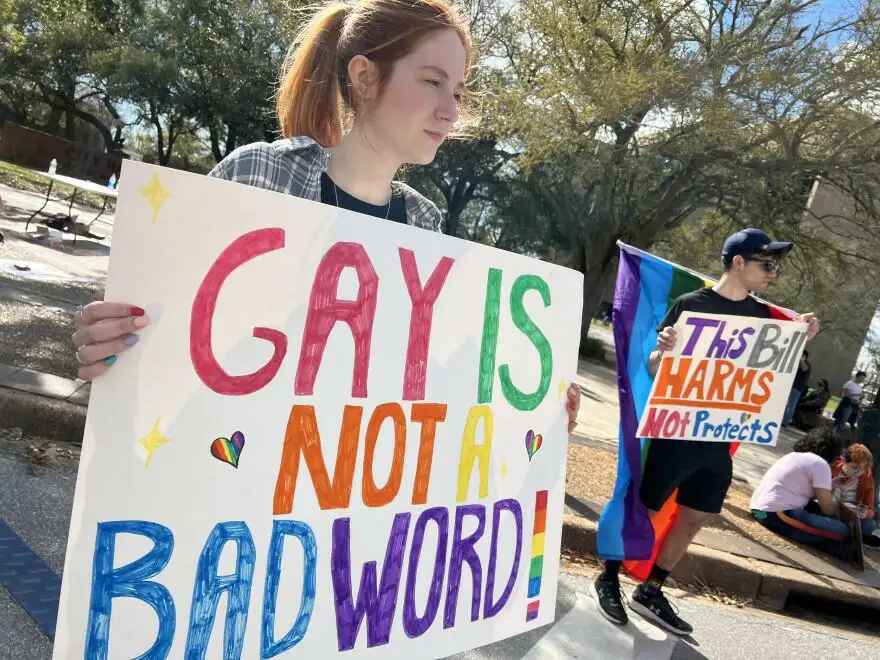Gov. Ron DeSantis of Florida has signed House Bill 1557 on 28th March, 2022, into law that supporters call the “Parental Rights in Education” bill and opponents refer to as the “Don’t Say Gay” bill.
Most of the bill would affect how mental health services are delivered to the state’s children and adolescents and how much control parents can have over those conversations.
One sentence has earned the bill the “Don’t Say Gay” nickname:
Lines 97-101: Classroom instruction by school personnel or third parties on sexual orientation or gender identity may not occur in kindergarten through grade 3 or in a manner that is not age appropriate or developmentally appropriate for students in accordance with state standards.
The impact is clear enough: Instruction on gender and sexuality would be constrained in all grades. But its language is vague and subject to interpretation.
The language highlights the youngest students, but the “age appropriate or developmentally appropriate” provision affects all ages. Those terms are highly subjective, and parents, school staff and students are likely to clash over the ambiguities.
“It’s not something that’s appropriate for any place, but especially not in Florida,” he said during the press conference in which the bill was signed into law. We will make sure that the parents will send their children to school to gather education, not indoctrination, the governor of Florida said during the signing.
LGBTQ+ activists are fearful and frustrated that this bill will totally limit the discussions or lessons related to identity, the community’s history, and the oppression it has faced prompting the community to call the bill by its very central notion-‘Don’t Say Gay’.
The bill also states that school staff must out students to their potentially unsupportive families who states that the parents must be notified about the change in a “student’s physical, mental, or emotional health or well-being”. The only exception in this is “if a judicious person would feel any abuse, abandonment or ignorance after disclosure of their identity.
This bill will give the power to the parents to sue school districts over any violations.
DeSantis signed the ‘Don’t Say Gay’ bill at the Classical Preparatory School in Spring Hill, Florida while surrounded by a small group of children in school uniforms, the majority of them were holding posters of: “Protect children, support parents.”
The signed bill will come into effect on 1 July 2022.
During the press conference, he said, “It’s not something that’s appropriate for any place, but especially not in Florida,”
He added, students learning “they can be whatever they want to be” was “inappropriate” and an ‘issue’ the legislation would resolve.
DeSantis and his supporters gathered for the bill signing called this messaging “sloganeering” and referred to efforts to educate students about LGBTQIA+ issues as part of “woke gender ideology.
Republicans assured the LGBTQIA+ community that the “battle against #DontSayGay is far from over.” The bill has received an international rebound for erasing Queer lives from Florida schools and putting queer kids at high risk.
The CEO of The Trevor Project said LGBTQIA+ youth are already facing more severe health and suicide risks than their straight peers. The suicidal rates will decrease when queer kids are given access to spaces that affirm their gender identity. The LGBTQIA+ youth deserve better to see their history, their families, and the reflection of themselves in the classroom.
He further said, “I want every member of the LGBTQ+ community – especially the kids who will be impacted by this fearful bill – to know that you are always loved and accepted just as you are.




2 thoughts on “What does Florida’s “Don’t Say Gay” bill actually say?”